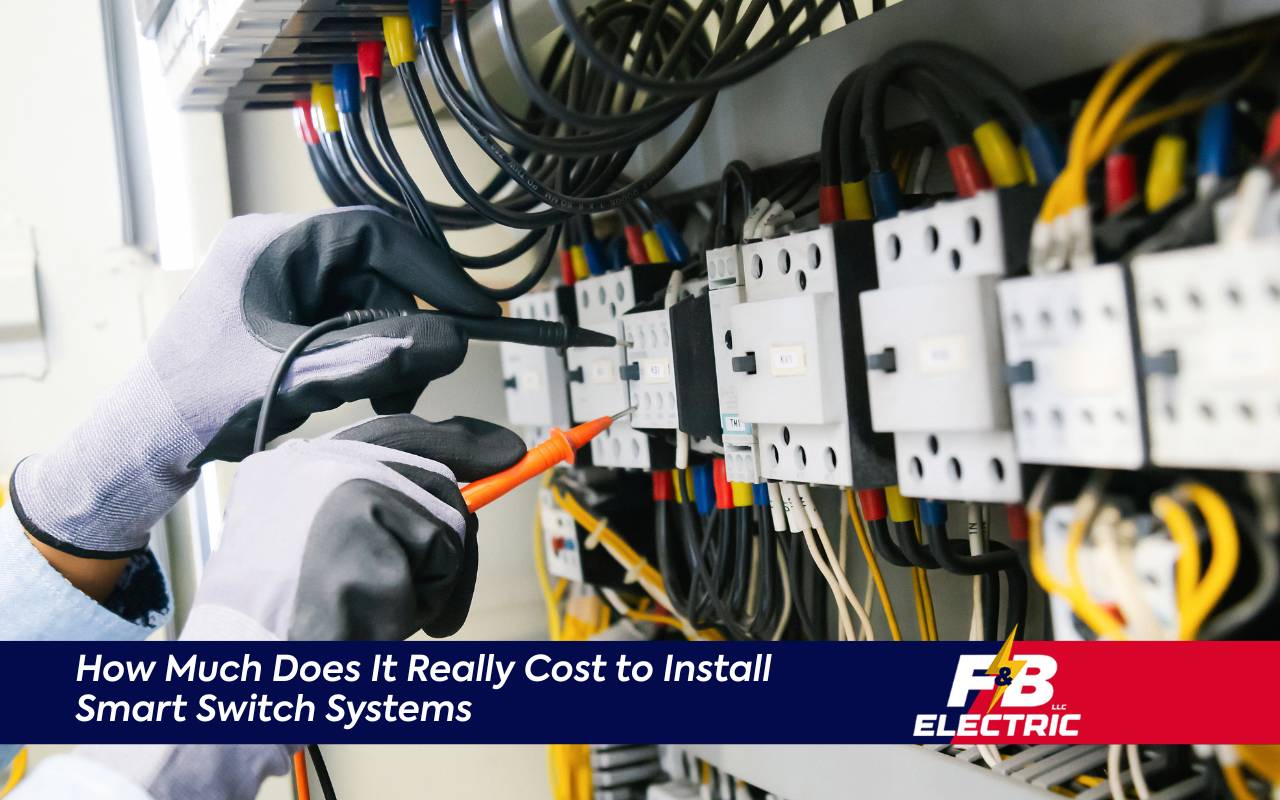
Are you ready to transform your home into a more efficient and effortlessly connected space? The allure of smart switch systems goes beyond modern aesthetics; they enhance convenience, improve energy management, and offer control like never before. However, the pressing question for many homeowners remains: What is the actual cost to install smart switch systems? By exploring this question, you can evaluate not just the investment but also the savings and peace of mind the upgrade brings. Understanding these details equips you to proceed with confidence.
Cost Breakdown of Smart Switch Systems
When assessing the cost to install smart switch systems, it’s useful to consider device prices, installation labor, and extra equipment. Devices vary from basic on/off models to advanced programmable panels, with costs shifting accordingly. Installation labor depends on wiring complexity, compatibility, and the need for a neutral wire. Additionally, professional calibration or network integration may require extra spending. Smaller projects like upgrading one room remain affordable, while full-home installations demand more resources. By comparing these elements side by side, you can better avoid surprises.
Types of Smart Switches and Their Price Range
- Single-pole switches: simple replacements for traditional toggles.
- Three-way or multi-location switches: allow control from multiple points.
- Dimmers and programmable models: add advanced features like scene control.
- Specialty switches: include occupancy sensors or energy monitoring.
- Wi-Fi, Zigbee, or Z-Wave models: may require dedicated hubs for integration.
Choosing the right type depends on both budget and functionality goals. While initial device prices matter, the cost to install smart switch systems also includes labor and integration efforts. Balancing needs ensures long-term value.
Installation Costs: DIY vs. Professional Services
Homeowners often debate whether to install smart switches themselves or hire a licensed electrician. A DIY approach saves money, yet it carries safety risks if wiring knowledge is limited. Professionals ensure compliance with codes, resolve wiring challenges, and reduce stress. Deciding between both options depends on your comfort with electrical systems, time availability, and complexity of the project. Either way, factoring installation choices into the cost to install smart switch systems is essential for realistic budgeting.
Additional Equipment Needed for Smart Switch Installation
Beyond the switches themselves, installations may require neutral wires, hubs, or network upgrades. A home automation hub is often needed for Zigbee or Z-Wave models. Network stability also matters; range extenders or upgraded routers improve performance. Voice control usually requires a compatible smart speaker. These elements add convenience and help maintain smooth operation while shaping the total project cost.
Factors Influencing Installation Costs
- Home size and layout: larger homes require more devices.
- Age of the house: older wiring may lack neutral wires.
- Geographic location: labor costs differ by region.
- Complexity of automation: advanced features add programming time.
By understanding these influences, you can anticipate which variables will impact your project’s bottom line and prepare effectively.
Comparison of Smart Switch Brands and Their Prices
Brand selection can significantly affect costs. Budget-friendly brands often focus on entry-level features, while premium ones provide advanced options and stronger customer support. Compatibility is crucial: some brands work only within their ecosystem, while others embrace open standards. Researching brand reliability and software support helps ensure long-term satisfaction and value.
Long-Term Cost Considerations: Energy Savings and Maintenance
Smart switches can lead to energy savings over time through monitoring and automated shut-offs. Data insights help reduce unnecessary energy waste, lowering long-term bills. Maintenance is also key; switches from reputable brands often provide firmware updates, extending device lifespan and improving security. Factoring in durability and update policies ensures fewer replacements later.
Budgeting Tips for Installing Smart Switch Systems
- Audit your lighting and prioritize high-use rooms first.
- Spread purchases over time to manage cash flow.
- Mix premium and budget switches to control spending.
- Seek rebates or incentives from utility companies.
- Compare multiple electrician quotes before hiring.
Strategic budgeting allows you to enjoy smart lighting without exceeding financial limits. Careful planning keeps the cost to install smart switch systems manageable.
Maximizing Value: Features to Look for in Smart Switch Systems
High-value features include scheduling, geofencing, and customizable scenes. These capabilities reduce manual effort while enhancing convenience. Energy monitoring offers detailed usage insights, and compatibility with security systems strengthens home safety. Choosing widely supported protocols ensures your devices remain relevant and adaptable. Focusing on these features guarantees a strong return on investment.
FAQs About Smart Switch Installation
Do smart switches require a neutral wire?
Most modern smart switches require a neutral wire, but some no-neutral models exist for older homes.
Can I install smart switches myself?
Yes, many models support DIY installation. However, professional electricians guarantee compliance and safety.
Are smart switches compatible with all smart home systems?
Compatibility depends on the brand and protocol. Some require hubs, while others connect directly through Wi-Fi.
Will smart switches work during power outages?
Smart switches stop functioning when electricity is out. Yet, they usually resume programmed functions once power returns.
How can smart switches save energy?
They automate shut-offs, track usage, and optimize lighting schedules, which together help reduce energy waste effectively.
Making an Informed Decision for Your Smart Home Transformation
Fully understanding the cost to install smart switch systems means evaluating devices, labor, equipment, and maintenance. Whether upgrading gradually or completing a whole-home project, careful planning ensures a smoother process. For expert support, explore our services or discover more about our electrical solutions. Ready to take the next step? Contact our team today through our contact page and begin your smart home transformation with confidence.
